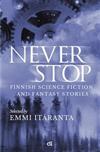
Immortal Life of Henrietta Lacks
1 journaler for this copy...
Arrived about two weeks ago from Better World Books. Very good condition.
Sent to sister Mary in Palo Alto.
I was so sure I wrote about this book after reading it but I do not find a word.
Henrietta Lacks was a black woman who developed an aggressive type of cervical cancer in 1951 and was treated at Johns Hopkins. As was usual at the time, cells were taken from her cancer to study. At the time, a search was on for cells that would replicate perpetually, to be used in test tube research. Cells tended to replicate in the lab for limited lengths of time, and then die off.
Henrietta's cells were different. They stayed alive. They were designated by the name HeLa (from her name) and were shared throughout the world. At the time there was no proprietary ownership of cells, and no protection of rights of ownership. Scientists the world over were - and still are - able to use these cells in their experiments.
Henrietta herself did not give permission to have these cells removed, and she was not told that it had happened. Her family was not aware of the transfer, or of how successful they were in the lab.
Rebecca Skloot became a part of the story when she began investigating it. She met the family, she met the doctors. The family was reluctant to let her in, generally, especially her daughter Deborah. They had been contacted for blood samples by a scientist in the 1970s, yet had never been told of the cells or their importance. For Skloot it was a bit of an uphill battle, explaining what she was doing and trying to find out more about the family itself. Her genuine interest in them came across and in time Deborah and Rebecca became close friends. The story, then, is the weaving together of Skloot's journey and Henrietta's life, along with threads of Deborah's life and of other near relatives.
It's an interesting story of medical ethics and of a poor black family, as well as of an attractive, lively young woman who died too young.
Henrietta Lacks was a black woman who developed an aggressive type of cervical cancer in 1951 and was treated at Johns Hopkins. As was usual at the time, cells were taken from her cancer to study. At the time, a search was on for cells that would replicate perpetually, to be used in test tube research. Cells tended to replicate in the lab for limited lengths of time, and then die off.
Henrietta's cells were different. They stayed alive. They were designated by the name HeLa (from her name) and were shared throughout the world. At the time there was no proprietary ownership of cells, and no protection of rights of ownership. Scientists the world over were - and still are - able to use these cells in their experiments.
Henrietta herself did not give permission to have these cells removed, and she was not told that it had happened. Her family was not aware of the transfer, or of how successful they were in the lab.
Rebecca Skloot became a part of the story when she began investigating it. She met the family, she met the doctors. The family was reluctant to let her in, generally, especially her daughter Deborah. They had been contacted for blood samples by a scientist in the 1970s, yet had never been told of the cells or their importance. For Skloot it was a bit of an uphill battle, explaining what she was doing and trying to find out more about the family itself. Her genuine interest in them came across and in time Deborah and Rebecca became close friends. The story, then, is the weaving together of Skloot's journey and Henrietta's life, along with threads of Deborah's life and of other near relatives.
It's an interesting story of medical ethics and of a poor black family, as well as of an attractive, lively young woman who died too young.







